Copper scrap | Cu scrap
EISENHARDT processes copper scraps including barley, berry, birch cliff, druid, bronze and brass.
Trading scrap metal and Recycling since 1977.

Barley Millberry - Copper scrap grade 1
ISRI code: Barley
No. 1 Copper wire.
Shall consist of No. 1 bare, uncoated, unalloyed copper wire, commonly known as Bare Bright copper
wire. Wire gauge subject to agreement between
buyer and seller.
Green copper wire and hydraulically compacted material to be subject to agreement between buyer and seller. Cu content 99% Cu.
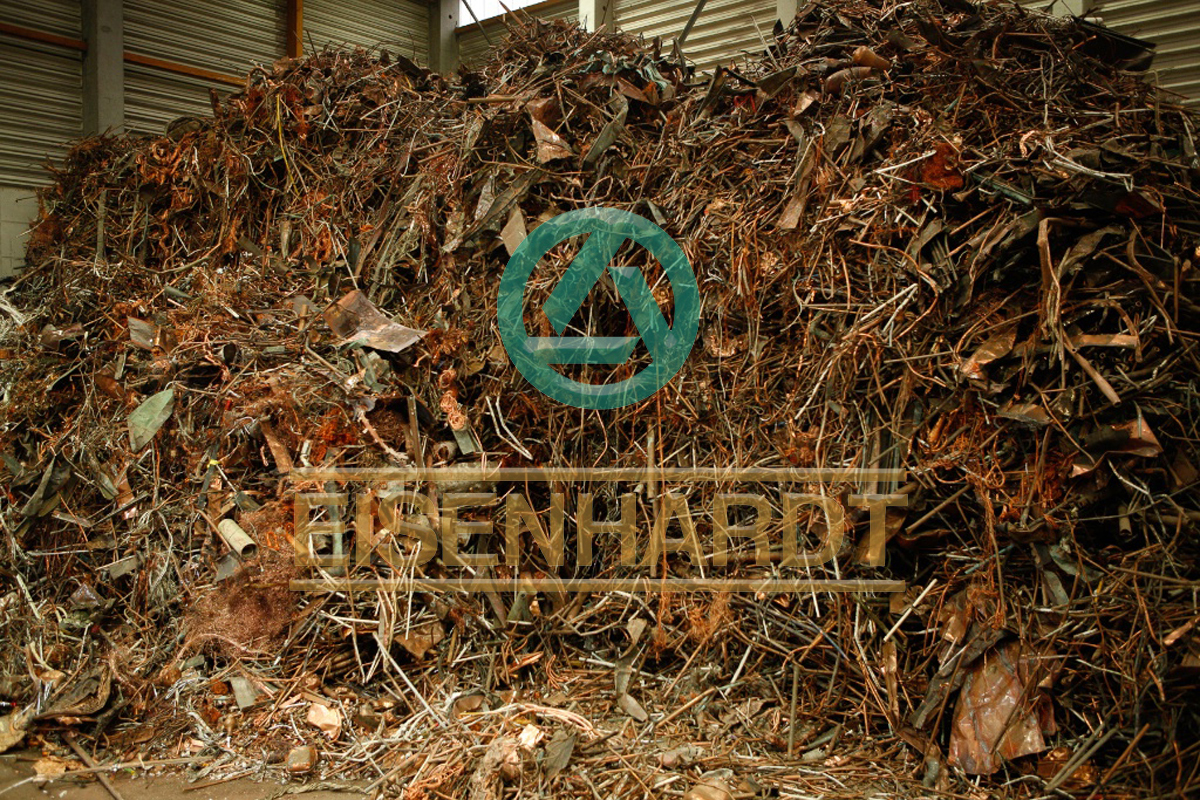
Copper scrap grade 2
ISRI code: Birch Cliff
A combination of No. 2 copper wire and copper as defined in Birch and Cliff. Cu content 94-96%.
No. 2 COPPER WIRE
Shall consist of miscellaneous, unalloyed copper wire having a nominal 96% copper content (minimum 94%) as determined by electrolytic assay. Should be free of the following: Excessively leaded, tinned, soldered copper wire; brass and bronze wire; excessive oil content, iron, and non-metallics; copper wire from burning; insulation; hair wire; brittle burnt wire; and should be reasonably free of ash. Hydraulically briquetted copper subject to agreement.
No. 2 COPPER SOLIDS AND TUBING
Shall consist of miscellaneous, unalloyed copper scrap having a nominal 96% copper content (minimum 94%) as determined by electrolytic assay. Should be free of the following: Excessively leaded, tinned, soldered copper scrap; brasses and bronzes; excessive oil content, iron and non-metallics; copper tubing with other than copper connections or with sediment; copper wire from burning; insulation; hair wire; brittle burnt wire; and should be reasonably free of ash. Hydraulically briquetted copper subject to agreement.
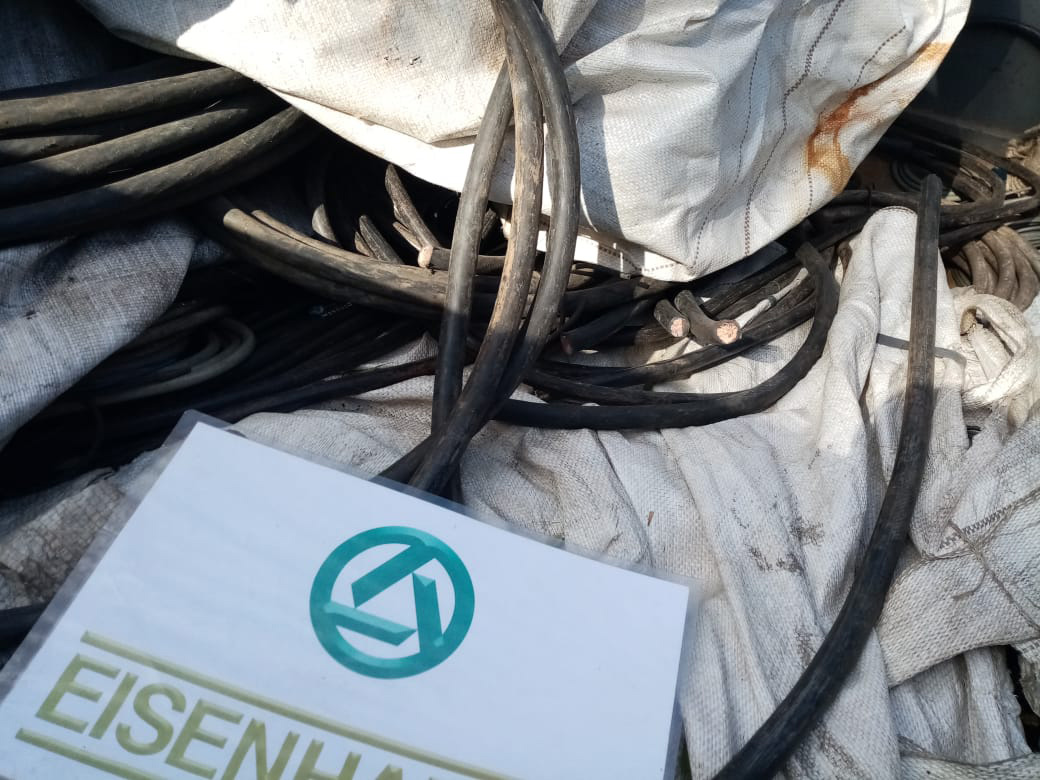
Insulated Copper Wire
ISRI code: Druid
INSULATED COPPER WIRE SCRAP Shall consist of No. 1 bare, uncoated, unalloyed copper wire (see Barley), not smaller than No. 16 B & S wire gauge (unless smaller wire gauge is mutually agreed upon), with various types of insulation. To be sold on sample or recovery basis, subject to agreement between buyer and seller.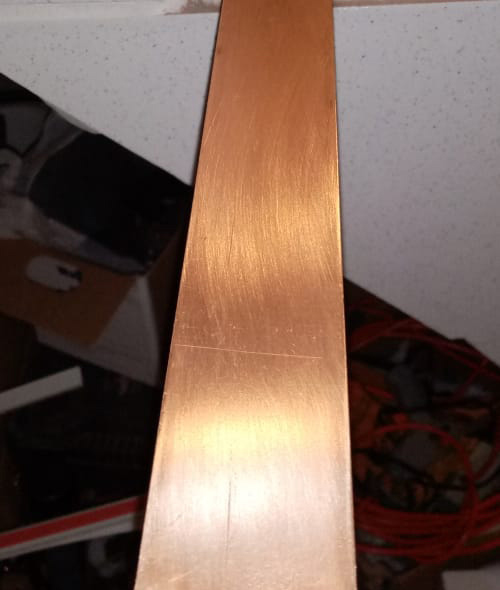
Copper Ingots
EISENHARDT melts and refines pure copper ingots produced with our electric furnace. Shiny and polished finished. The copper content is 99,99% as determined by electrolytic assay.
Copper is obtained raw by concentration, roasting and melting in electric furnaces. This metal is purified to 99.99% by refining, by means of fusion in a reverberatory furnace with additives that form slags with iron and nickel. Then the existing copper (I) oxide is reduced with carbon. Subsequently, the electrolytic refining is carried out.
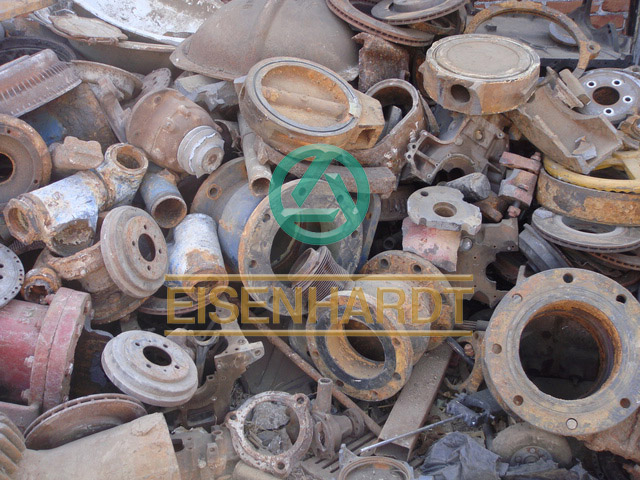
Red Brass
ISRI code: Ebony
Red Brass Solids
It includes red brass solids scrap and may consists of valves, machinery bearings and other red brass solids, consisting mainly of copper with
tin/lead/zinc alloys.
Composition of Red Brass shall consist of red brass scrap, valves, machinery bearings and other machinery parts, including miscellaneous castings
made of copper, tin, zinc, and/or lead. Shall be free of semi-red brass castings (78% to 81% copper); railroad car boxes and other similar
high-lead alloys; cocks and faucets; closed water meters; gates; pot pieces; ingots and burned brass; aluminum, silicon, and manganese bronzes;
iron and non-metallic. Heavier pieces acceptable upon mutual agreement between buyer and seller.
Ebony Red Brass Scrap consists of 85% copper, 5% tin, 5% lead, iron 0.05% and 5% zinc.
EBONY Brass Scrap appears reddish in colour due to the large amount of copper content.
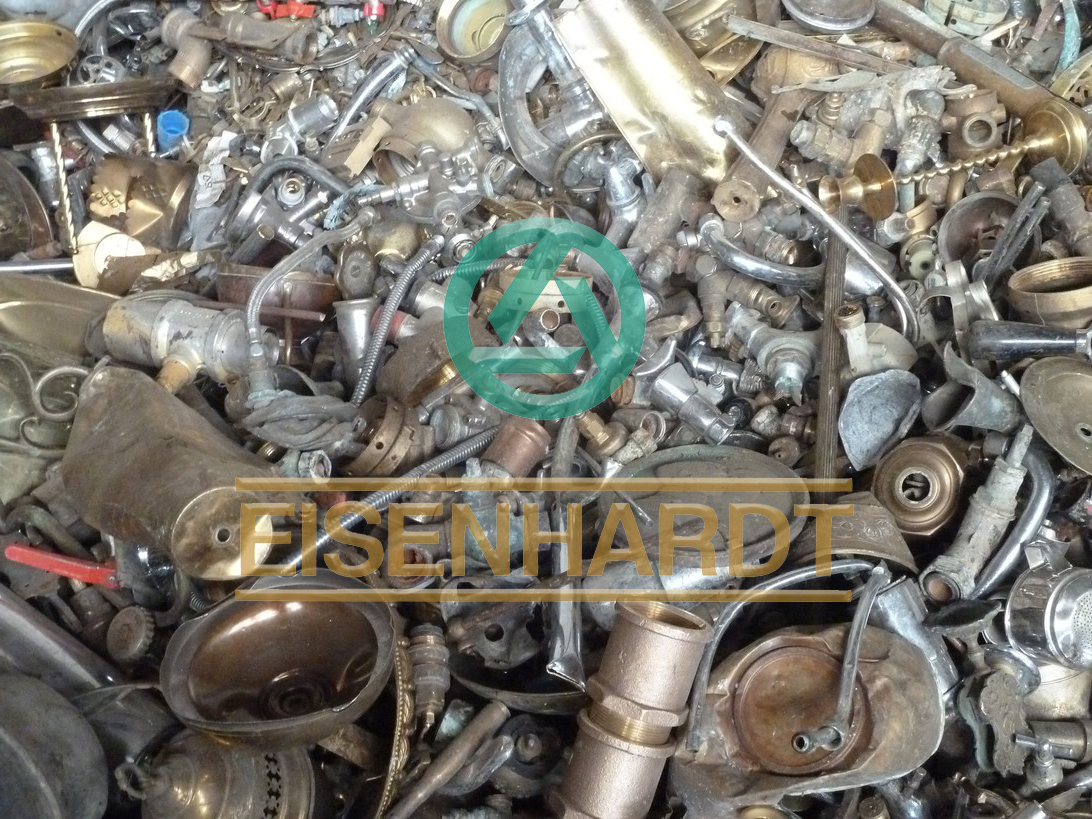
Yellow Brass
ISRI code: Honey
Yellow Brass Scrap
It consists of mixed yellow brass solids, including brass castings, rolled brass, rod brass, tubing and miscellaneous yellow brasses, including plated brass. Yellow Brass Scrap must be free of manganese-bronze, aluminum bronze, unsweated radiators or radiator parts, iron, excessively dirty, corroded materials, paint, plastic, washers, glass, etc. Must also be free of any type of munitions including, but not limited to, bullet casings.
Honey Yellow Brass Scrap is a copper alloy that comprises of about 60-70% copper, 30-40% of zinc, tin and lead in traces.
HONEY Brass Scrap appears yellowish in colour due to the presence of more zinc. Yellow Brass Scrap is more reflective and brighter in colour than Red Brass Scrap. Yellow Brass Scrap is less expensive than Red Brass Scrap due to its lower copper content.
